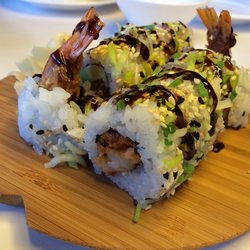Sushi is a traditional Japanese food, also popular in Europe, consisting of acidified rice and raw fish. This study investigated the correlation between monitoring of hygienic levels and compliance with establishment-managed controls by public food inspectors and observed microbial levels of two types of sushi products, Maki salmon and Nigeri salmon, sold by Danish outlets.
 Danish consumers’ knowledge of the specific tests carried out by food inspectors was also examined. The total microbial contents of the products ranged from 4.1 to 7.5 log CFU/g and contents of Escherichia coli and Staphylococcus spp. ranged from <1 to 2.3 and <2 to 3.0 log CFU/g, respectively. There was in general no correlation between the publicly accessible rankings by the food inspectors and the microbiological contents of the products. Underlying reasons might be that the regulatory monitoring of compliance with control programs does not readily include two important parameters, personal hygiene and initial microbial quality of products. Microbiological examination of sushi products does not constitute a part of routine monitoring of hygienic levels, a fact that by use of a questionnaire study was found not to be widely known among consumers.
Danish consumers’ knowledge of the specific tests carried out by food inspectors was also examined. The total microbial contents of the products ranged from 4.1 to 7.5 log CFU/g and contents of Escherichia coli and Staphylococcus spp. ranged from <1 to 2.3 and <2 to 3.0 log CFU/g, respectively. There was in general no correlation between the publicly accessible rankings by the food inspectors and the microbiological contents of the products. Underlying reasons might be that the regulatory monitoring of compliance with control programs does not readily include two important parameters, personal hygiene and initial microbial quality of products. Microbiological examination of sushi products does not constitute a part of routine monitoring of hygienic levels, a fact that by use of a questionnaire study was found not to be widely known among consumers.
Food Control, Volume 45, November 2014, Pages 76–80
J.J. Leisner, T.B. Lund, E.A. Frandsen, N.B.E. Andersen, L. Fredslund, V.P.T. Nguyen, T. Kristiansen
http://www.sciencedirect.com/science/article/pii/S0956713514002126
